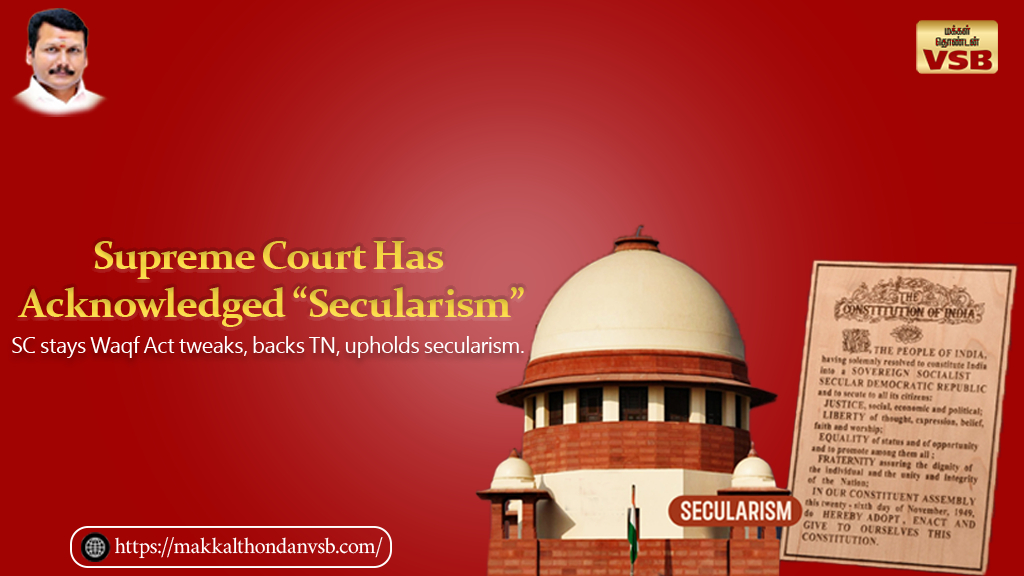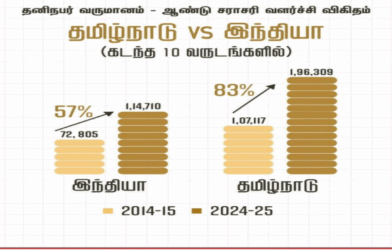Parallel to its autonomy push, Tamil Nadu has emerged as a key player in opposing the Waqf (Amendment) Act, 2025, which critics argue undermines minority rights and federal principles. The Act, passed recently, allows non-Muslims to be appointed to Waqf boards and councils, a provision that sparked widespread outrage. Over 100 petitions flooded the Supreme Court, with the DMK, alongside parties like Congress, AIMIM, and the Samajwadi Party, leading the charge.
During the April 17 hearing, Chief Justice Sanjiv Khanna’s bench posed a pointed question to the Union Government: “Will you appoint a Muslim to Hindu boards or temples?” This query cut to the heart of the opposition’s argument that the Act violates Articles 14, 25, and 26 of the Constitution, which guarantee equality, religious freedom, and minority rights. The court’s interim order prevents de-notification of Waqf properties, including those under “Waqf by user,” and bars new appointments to the Central Waqf Council or State Waqf Boards until the next hearing on May 5, 2025.
Tamil Nadu’s opposition to the Act has been both vocal and strategic. The state’s Legislative Assembly passed a resolution on March 27, 2025, urging the Centre to withdraw the Bill. DMK leaders, including Tiruchi Siva and Kanimozhi, fiercely criticized the Act in Parliament, labeling it an assault on secularism. The party’s Supreme Court petition, filed through MP A. Raja, argued that the Act prejudices the rights of 50 lakh Muslims in Tamil Nadu and 20 crore nationwide. The court’s stay is seen as a vindication of Tamil Nadu’s stance and a setback to what the DMK calls the “divisive agenda” of the RSS-BJP.
The DMK’s Midas touch was on full display as two pivotal issues were decided in favor of the Stalin-led government. The first was a landmark Supreme Court judgment concerning the Governor’s inaction on a bill, where Article 142 was invoked to grant assent—marking a significant victory for state autonomy. The second was the withdrawal of the Waqf Amendment Bill 2025, a move widely seen as a triumph for secularism and inclusive governance.






